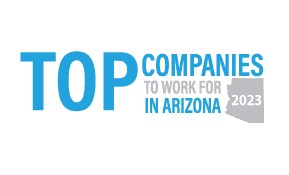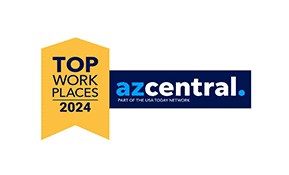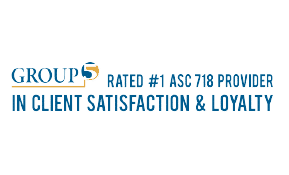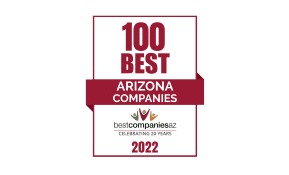
Careers
Experienced Candidates
At Equity Methods, you’re part of a quickly growing consultancy that solves tough problems related to equity compensation, derivatives, and other complex securities. We deploy our expertise across the domains of financial reporting, technical finance, human resources consulting, and technology/systems.

Careers
Experienced Candidates
At Equity Methods, you’re part of a quickly growing consultancy that solves tough problems related to equity compensation, derivatives, and other complex securities. We deploy our expertise across the domains of financial reporting, technical finance, human resources consulting, and technology/systems.
The job is challenging. So challenging that after each accomplishment it’s full speed ahead to the next mission. 5 years later, you step back and realize how much you’ve advanced as a professional and made a real difference to your clients.
Radostin KanevJust the Right Size
We’re a firm of about 100 people. Technicians at heart, we love solving daunting problems for clients in a way that creates impact. And we especially enjoy delivering our solutions in plain English and with white-glove service.
As an experienced hire, you have a direct role in driving material business outcomes. You’re an expert and will operate as such.
Once you join, you’ll work closely with your manager(s) to align your key strengths with the firm’s largest needs. We shun hierarchy, reject bureaucracy, and respect results-driven thinking. If you see a better way of doing things, we want you to say so. You own the credit—and (fair warning) probably the execution as well.
Every contribution matters. Yours will be noticed.
Room to Stretch
As a small firm, we don’t slice each job into tiny pieces and wrap each piece in structure. Structure matters, but we expect you to create it, not just consume it. We look to you for judgment, intuition, and ways to apply long-run thinking to short-term problems.
For this reason, you’re never pigeonholed. If you have an interest in another area of the business and think you can solve a bigger business problem there, chances are you can get involved in some way. Borders are pretty porous around here.
That’s not just our philosophy. It’s also the nature of working in a high-impact environment, which doesn’t allow for roles to become overly narrow. Some of our seniors are technical experts who broaden our knowledge base into new technical areas. Others focus on the client and bringing innovation to how we serve them. Still others bring scale and stability to processes via end-to-end architecture and controls.
As for constraints on recognizing performance: There aren’t any. Your track record—the one you earn for yourself—is what counts. So if you do well, the opportunities present themselves to you.
There are a lot of areas where you grow your skills. It’s not strictly accounting all day long. You can explore what you like to do and pursue the things that interest you the most.
Josh WilliamsYou create the growth of the firm, and then you can step back and draw a direct line between your efforts and overall firm-level results.
Josh SchaefferGive and Get
Larger firms often have specialized groups for initiatives like employee training, process re-design, and service development. While some of us focus more heavily in these areas at EM, we all share responsibility for developing the firm to its fullest potential. Mentoring junior associates, improving client service processes, engaging in business development, and much more are all par for the course. You learn a lot about business by being exposed to these domains.
If you need help with anything, you’ve got it. That goes for client service work as well. Why? Because if we bring you in, we bring you in with the intention that you will succeed. And progress is predicated on the firm doing well. If a coworker struggles, no one wins.
Consider this too. By managing a process end to end, you gain important insight into overall firm operations. This prepares you for practice leadership, which in many ways is like running a business of your own.
You have a big impact on the destiny of the business. Then, in the same day, you’ll solve some analytically intense problems for a Fortune 500 client.
David OutlawOne advice that I often give is not to hesitate to ask for help. I personally find a lot of satisfaction in helping others think through a problem and bouncing off ideas, and I think this is a shared attitude within the firm.
Therese Sebastian
Close to Home
Another difference between Equity Methods and a large firm is the number of offices. We have one, and it’s in Scottsdale. We need you here to work side-by-side with the team.
But that’s also the good news. If you’re not familiar with the Phoenix metro area, know that the Valley of the Sun is a pretty great place to live. And as far as work is concerned, it has the number one criteria for consulting: proximity to a major international airport.
That said, and admitting our clients are all over the US, travel isn’t bad. Two trips in a single month is what we consider a busy travel period.
The Edge and Back
Although various groups within large firms try to cooperate, it takes enormous effort to identify the right resources, accommodate every agenda, and encourage all parties to act as one. In that kind of environment, it can be very difficult to bring ideas to fruition.
At Equity Methods, however, innovation has but one test: Does it improve the quality of our work? If the answer is “yes,” and we’re the best to do it, we have to do it. It’s our responsibility to the client.
What do you think? Does Equity Methods sound right for you? Then get in touch. Apply now.

Proud to be Awarded
Our collegial and tight-knit group of smart, energetic consultants is a key reason why Equity Methods is recognized with industry and workplace awards, year after year.





Take the Next Step Today
Interested in working with us? Browse our open positions today and take the next step in your career journey.
